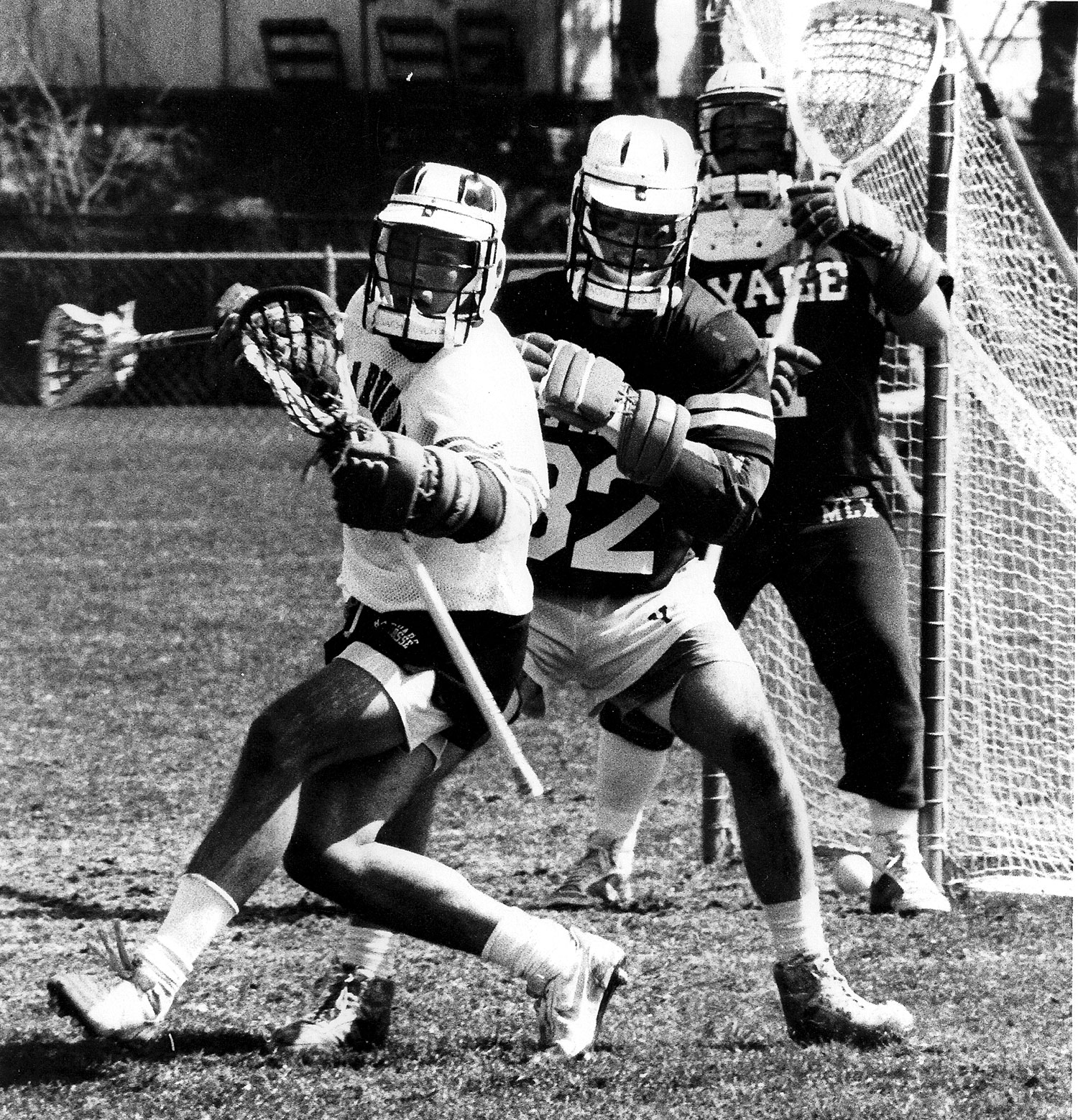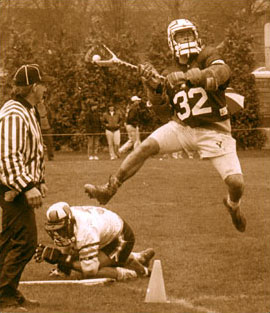1986
Coached By: Rich Burns
Everything about Jonathan Reese's story is intriguing. His dad played lacrosse at Syracuse and was the head coach at his high school's rival. His mom petitioned the school board when he was in 7th grade so he could play because West Babylon didn't allow kids younger than 8th grade to participate in contact sports. He went to Yale and scored more goals in a single season than any other player in the history of Division I lacrosse, and played football while he was there, too.
He worked on Wall Street and quit after 9/11. The stadium at Yale is named after him and his brother, who was also a talented athlete. And now, he's starting his own foundation and finds time to coach with the varsity lacrosse club at West Islip.
His life has packed enough content in for a book, and every year Jon Reese kept piling up the accolades and accomplishments. For him, it's a case of being born with athletic genes.
His father Walter captained the lacrosse team at Syracuse and was a football and lacrosse coach at Copiague High School for nearly 30 years. Like any loving sons, Jon and his brother Jason followed their father on the athletic path of life.
Many Saturday mornings the boys would be on the field, snagging balls and watching their father give orders.
Reese admits he grew up during a unique time, when youth lacrosse leagues - aside from Ward Melville - rarely existed. It wasn't until he was in 7th grade when he was able to play organized lacrosse, but even that was a problem since West Babylon only players in 8th grader or higher to participate in contact sports. So, Reese's mother petitioned the school board and her boy was holding a stick and pads in no time.
He was gifted with the stick and played four years of varsity ball, and excelled on the football field and basketball court, also.
There was always this added pressure that built up for Reese. Not only was his dad a rival coach, but his older brother Jason was an outstanding athlete, too, and a terrific goalie for West Babylon, three years his elder.
The story goes that Copiague didn't lose too often to West Babylon in any sports, but when the Reese brothers took the field at the same time, the Eagles and Walter Reese didn't have a chance. Many recall Jon having big games, scoring more than 10 goals at least once.
Jon remembers the time when he was leveled as a freshman and Copiague fans erupted in applause. Walter stood quietly on his sideline, not wavering, living in his old-school mindset.
"I can imagine how hard that was for my dad," he says. "I scored a couple of goals that game and we won."
Though he doesn't remember specific games from his high school playing days, he does recall playing against Lindenhurst and Sal LoCascio, who is considered one of the greatest goalies of all time, and played against Reese when he was at UMass, also.
Reese was an all-world athlete by the time he graduated and won the Enners Award in 1986. He was recruited to play football at Syracuse, UCLA and BC, amongst many others, and offered full lacrosse scholarships to UNC, Johns Hopkins and Virginia. It helped that his brother Jason was already at Yale, playing sports, so he chose to attend the Ivy League school, too. The catch was the he could play both football and lacrosse and he was brilliant at both for the Bulldogs.
By his senior year he was elected captain of the football team, a tremendous honor for one of the winningest and historic programs in college football history.
He says he got his edge on both fields by "playing angry," which worked just fine considering he set the single-season scoring record with 82 goals in 1990. The last person to even come close was Duke's Zack Greer in 2007 - and he only scored 67.
He led Yale to three Ivy League titles in lacrosse and one in football.
After college, he was drafted first overall by the New York Saints and played a bit with the New York Athletic Club. He had a chance to try out for pro football teams, but by then he admits he was burnt out.
"Playing two sports in that academic arena was exhausting," he says. "I had a great career, but it was very tiring. The way I competed with that anger and intensity allowed me to play at a high level, but it's exhausting and is difficult to flip that switch and be a professional in the real world the next day. I didn't have the desire any longer."
So, it was on to Wall Street, where he worked for Lehman Brothers - a job that he likened to athletics because of its competitive nature. After the tragic events of 9/11, a day when he lost his best friend Tim Coughlin (he also played at Manhasset High), who played college lacrosse at Stonehill, Reese decided to spend more time with his family and less time in the city at work. Like it was for many, the moment was life altering.
"How can I give back?" he asked himself. "What can I do that gives back to the community and those in need?"
For the last two years, Reese, who has the lacrosse facility named Reese Stadium after him and his brother, has been developing the Make It Count Foundation, which will go full-force in March.
On the foundation's website, it says it's goal is to "inspire people to fulfill their maximum potential by serving as a catalyst for socio-economic transformation. With a focus on health, education, and safe housing, Make It Count believes not only that all human beings are entitled to the basic necessities of life, but also that all people should have an opportunity to make every moment of their life count."
Reese is also an assistant varsity lacrosse coach at West Islip High School, where his son Jonathan is a JV player. He finds it inspirational to spread his messages via sport.
"My number one priority isn't about winning games," he says. "It's about teaching young people about life. It's a great platform for me to deliver that message."
You can learn more about his foundation by going to http://makeitcountfoundation.org/.




